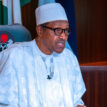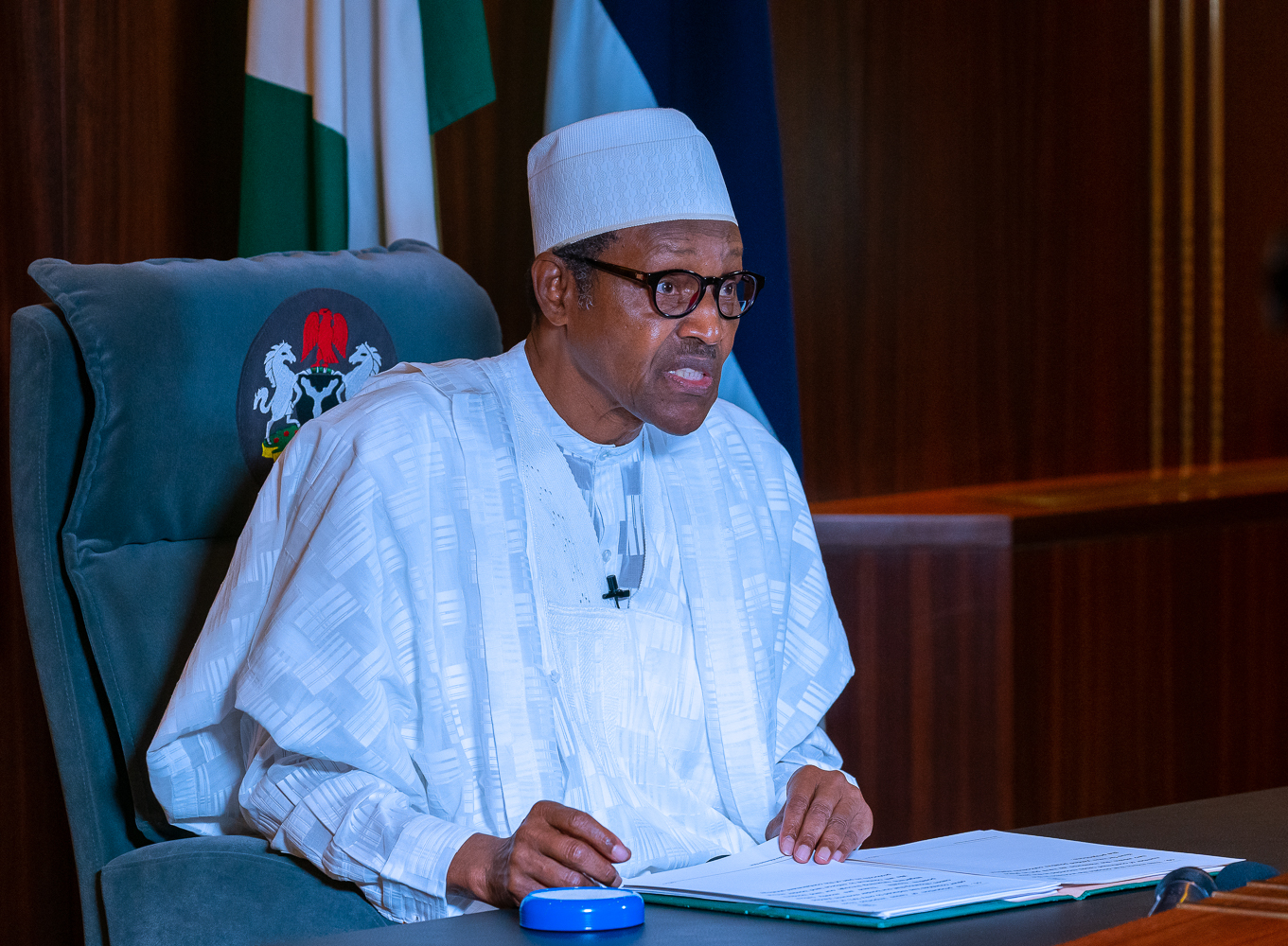

By Dr. Ugoji Egbujo
It’s been five years of President Buhari. The second leg has started like the first. A few months after being sworn-in in 2015, oil prices crashed. The new president faced an economic challenge against which the nation was defenceless because she had no buffer in savings. As if the oil price crash wasn’t sufficient tragedy, some Niger-delta militants began throwing tantrums, blowing crude pipelines, and crippling oil production. The country’s economy crumbled to its knees, slipped into a depression, and political tensions sparked by the defeat of the incumbent president in 2015 snowballed. Political bitterness, Inter-ethnic acrimony, bigotry, hate speech, rumour mongering, spread.
While the economy suffered a blow after blow, herdsmen violence spiralled out of control to complicate a security situation made precarious by the Boko haram insurgency. The massacres and bloodbaths, and the conspiracy theories weaved around them, drained the president of political capital in many parts of the country.
So the euphoria that followed Buhari’s first democratic coming in 2015 dissipated quickly.
But hopes lingered in many hearts. After all, he was the no-nonsense Buhari who could take the difficult decisions; who could step on toes and take corruption headlong; who could easily prioritize nationhood over partisan politics.
The perception of a slow clumsy start left by the economic turmoil and security challenges was compounded by the uncertainty imposed on that picture by his ill health.
The Naira reeled, and the Federal Government staggered. The Economic Recovery and Growth Plan was conceived to steady the floundering ship, put her back on smoother waters, and sail to unity and prosperity.
As the first half of the first leg ended, the president’s health improved. Some confidence was restored in his handling of the economy and security situation. But he had lost a few hearts and disappointed a few minds. Many had great expectations and they couldn’t take excuses.
In the second half of the first leg, the president’s team began to string its passes together and the nation began to see glimpses of hope.
The Naira returned from its wayward ways, steadied and anchored at 360. The Foreign Reserve soared. The import substitution program aimed at food sufficiency and conservation of foreign reserves kicked off. Local rice production doubled, and local rice consumption perhaps tripled. The President’s fertilizer initiative brought cheaper and readily available fertilizer.
The CBN’s anchor borrowers program made credits available at lower interest rates for selected cash crop farming. Other crops like wheat, cassava, cashew nuts, palm oil, tomato started coming on stream, following the footsteps of rice. The ERGP had foreseen complete import substitution for Rice by 2020.
But the good showing wasn’t limited to forays into Agriculture. The Lago-Ibadan rail project was initiated and has been pulled to near completion. The Abuja-Kaduna rail was completed and commissioned. The Warri – Itakpe line was completed.
READ ALSO: President Buhari is making the change Nigerians demanded -Presidency
Having found its rhythm in that half, the government began a flurry of social intervention programs. It fed school children in collaboration with states. It employed N-Power youths to help in Agriculture, Education and Health. It chased poverty around, combining conditional cash handouts to the poorest with giving small loans to petty traders.
President Buhari ran for re-election promising to extend rail lines right across the country and to wean the nation off its dependence on oil. He promised to rev up the anti-corruption war and the obliterate the insurgents whom he had declared technically defeated. He promised to send bandits to hell early. And to make life more bearable for the poor.
He won convincingly and heaved a sigh of relief.
He started off well. He took the power monster by the horn, reaching an agreement with Germany and Siemens to banish the demons of epileptic power supply that have bedevilled and stunted our industrial development. He kicked off plans to reform the Police. He adopted the Oronsaye report on public service reforms which the previous government couldn’t find the guts to implement.
The implementation of the report will save the nation billions in the already burgeoning overhead costs, and improve efficiency. He pushed the enforcement of the financial autonomy of Local Governments through the NFIU. He continued with determination the scheme to widen the tax net and broaden the country’s income stream. The government took early steps towards beginning the promised Lagos-Calabar rail and extending the rail line from Ibadan to Kano.
So on fundamental policy reforms and infrastructural development, the federal government was bouncing on the right track. The perennial obstacles of the poor income stream; expanding debt profile; pervasive corruption; weak, analogue, fuel-guzzling civil service, still lived. But progress was being noticed on all fronts
The NNPC recently announced the abolition of the subsidy on petrol. It said the program was fraud-prone and had bled the federal government of scarce resources. Many had expected the president to do away with the petrol subsidy in 2015. The NNPC announced plans to build six first-rate regional hospitals to curb medical tourism. Many had also expected the president to address medical tourism in his first years.
So let us then say, President Buhari started fixing rots he met and plugging his own lapses.
The morale of our soldiers was boosted by arms acquisition. The battle against the insurgents started looking truly winnable, for the first time. Banditry declined but persisted sufficiently to cause unacceptable losses of lives and hamper agricultural output. The BVN and TSA have been fully institutionalized. The IPPIS was being extended to curb the menace of ghosts in workplaces and their drain on the economy. The president was taking on challenges previous administrations had dreaded.
The Federal Government obtained the approval of the National Assembly to borrow massively and prosecute infrastructural priorities.
Everything seemed upbeat until February 2020.
Seven months after the second leg began, another tragedy struck. Coronavirus broke loose and became a ravaging pandemic. Apart from its catastrophic toll on human lives, it threw the economy of the world into a tailspin. Oil demand congealed. Oil prices sank to unimaginable depths. The entire world fretted, and shut itself down.
The picture of the future looks gloomy everywhere and perhaps worse in Africa. Nigeria’s import-dependent economy is dependent on oil for foreign exchange earnings. And oil is terminally ill.
Again it’s a deja vu. Buhari is being welcomed by another calamity.
The president will have to forge ahead through the Coronavirus storm. But so much is out of his hands. We have to pray. The 2020 budget has been revised. And might need to be revised again. That deficit budget was meant to be financed with foreign loans. The economies of China and the West have nosedived. The forecasts for 2020 and 2021 are nightmarish.
Will Buhari find the funds to carry out his ambitious infrastructural priorities? Or will the nation drift and scratch again for a couple of years? His commitment to putting the country on a growth path has met cogs thrown by nature.
Fortunately, this time, he has an economic advisory team that can be trusted to handle the fallout of the pandemic. But the imminent death of oil means their task will be arduous and recovery from the imminent recession will be painful and slow. With a slowing of the economy, even the effort to widen and deepen the tax net would be negatively impacted. The Naira is once again taking blows. Jobs which are now being shed like leaves in the dry season will disfigure a bad unemployment picture. And youth unemployment is the new root of all evils.
But there is hope. Diversification has been a slogan for too long. Since it has become the only solution to the problem, the coming recession could be a blessing of some sort on the long term. We must be hopeful that we have learnt our lessons.
While the president struggles with the public health danger and its disastrous economic fallouts he must seek to do more reforms and re-position the country.
The country’s population is growing at an alarming, poverty-inducing rate. He should birth and nurture a population control policy while he still has time. The country needs a census and a modern data collection attitude. The promised police and judicial reforms should take place now. Electronic voting and transmission of results. A power devolution mechanism should be fashioned. A new mass mobilization and national reorientation strategy to give the country new songs of unity and visions of progress.
The president has been less than fortunate. But good and strong leaders are defined by crises.
Previous administrations attempted reforms on the eves of their departure. True democracy doesn’t expect a departing resident to set agenda for an incoming resident. So President Buhari must introduce needed reforms quickly and see them through infancy before he leaves. The big ones and the small ones. He has the guts. He has issued an executive order to implement financial autonomy for state judiciary and legislatures. He should widen and solidify his political restructuring endeavors through proper laws and constitutional amendments.
Once again, it looks like he will use the first half of the second leg to fight fires, and seek to build in the second half. But there is a difference this time. In the later part of this second half he would be a lame-duck president distracted by his party’s internecine squabbles for 2023.
I wish the president God’s grace and the best of luck.
The post President Buhari: Five years on appeared first on Vanguard News.
https://ift.tt/3cfA4cM by Emmanuel Okogba via Vanguard News Albert Einstein Fools of Fortune
Comments
Post a Comment